Diabetes can have a number of effects on the eyes. Diabetics can get cataracts earlier and fluctuations in vision related to changes in blood sugar going in and out of the natural lens of the eye causing swelling. These blood sugar changes make it difficult to give a patient a new presription for glasses until the blood sugar is stable and under better control. Hopefully, an A1C under 7.0 and a blood sugar under 130 for at least 3 weeks before the exam for glasses.
Background Diabetic Retinopathy . But the biggest threat to vision, are the effects of diabetes on retina circulatory system. Diabetes causes damage to retinal blood vessels causing them to be weakened and leak. In the early stages, this can lead to small bleeds and leakage of fluid into the retina. At first, not really effecting or noticed by the patient.These effects usually occur progressively over years. The more out of control the blood sugar the greater the risk for progression of the disease. Blood sugar control is the best way of preventing diabetic retinopathy and keeping it from progressing. These changes are called background diabetic retinopathy. Is this progresses over time it may lead to swelling of the central retina called macular edema. These changes can cause a decrease in vision.
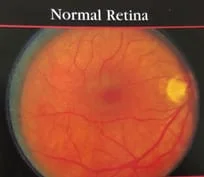
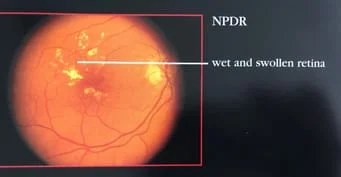
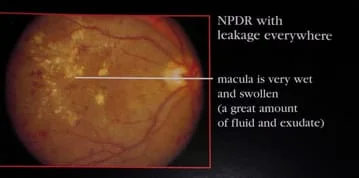
Proliferative Diabetic retinopathy is a more severe change that can occur as the disease progresses in the eyes. The abnormal vessels cause areas of the retina to be oxygen deprived or ischemic. New, abnormal, fragile vessels start to grow to try and give oxygen to these ares. These new delicate vessels bleed easily causing further decrease in vision.
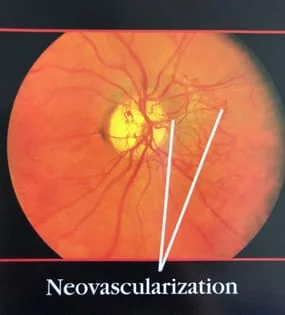
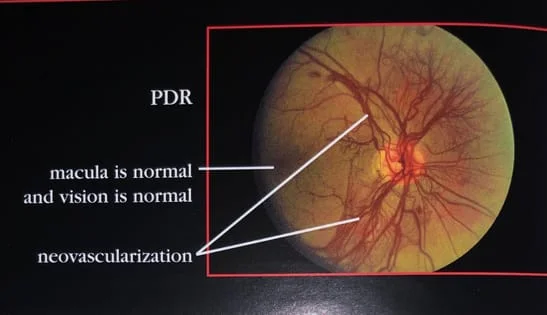
Diabetic treatment
Good blood sugar control is extremely important to prevent advancement of the disease.Early diabetic retinopathy often does not need to be treated, but just followed closely to make sure it does not progress. Diabetics should be seen a minimum of once a year.Macular edema can be treated with laser treatment to stop abnormal vessels from leaking. In more advanced cases, Injections may be given in the eye of drugs thatdecrease the formation of the fragile vessels. This often has to be done for months, often with 1 injection every month.Proliferative Diabetic Retinopathy often requires larger areas of laser treatment and injections to the eye.
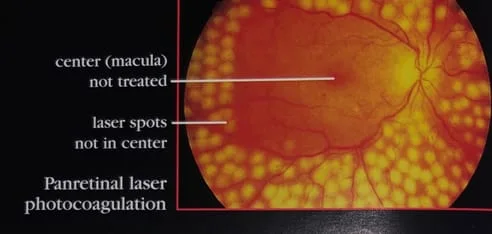
In Final, the most important thing is to control your blood sugar as much as possible and have a yearly exam by our eye Professionals. Dr. Jonathan Buka and Dr. Birva Shah have many years of following, diagnosing and treating Diabetics. Make sure you are seen yearly.
